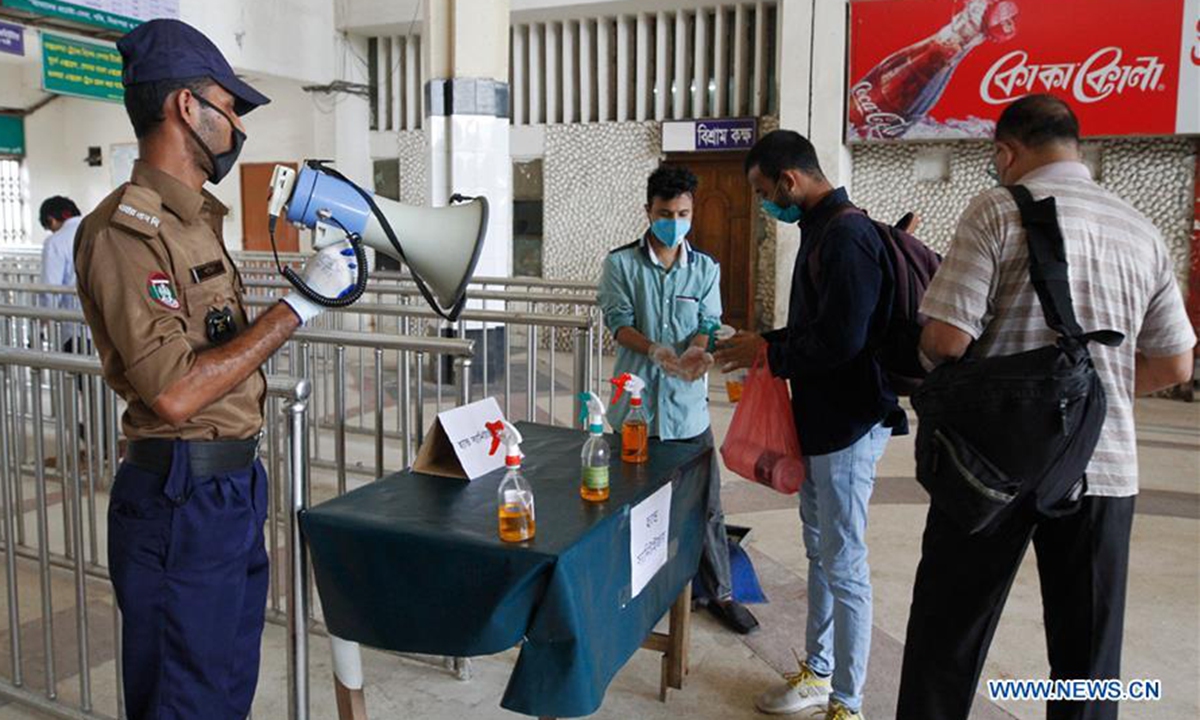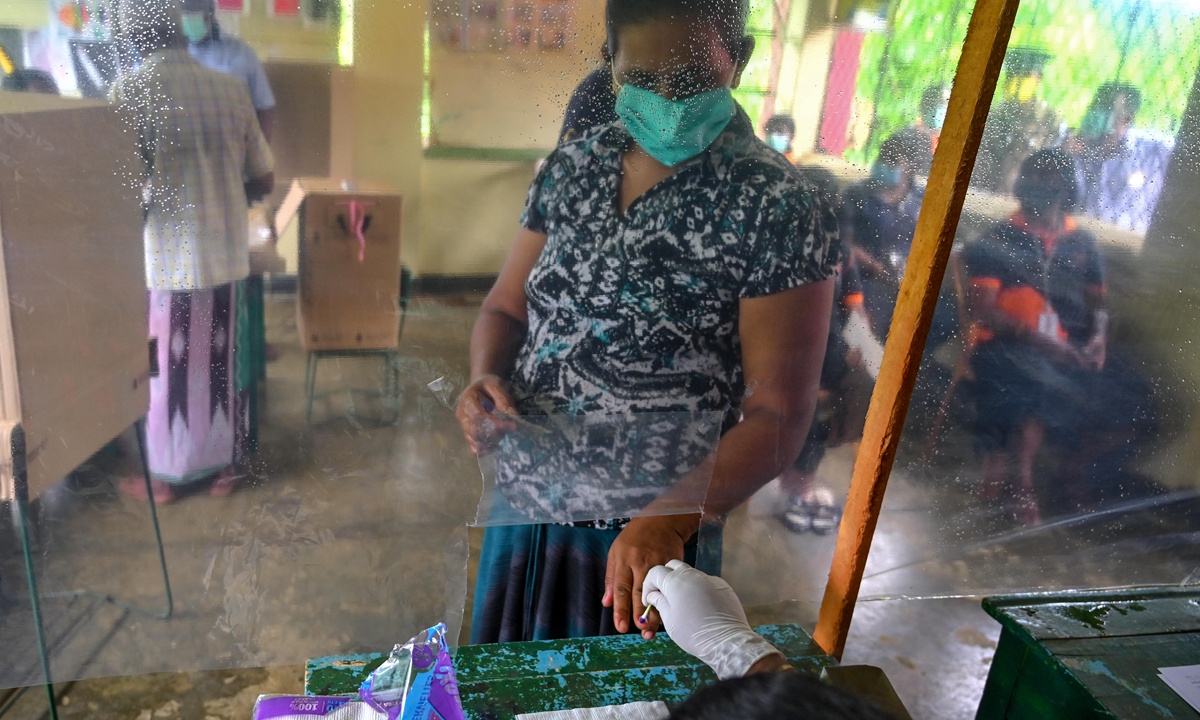China suspends Dhaka-Guangzhou air route amid spike in imported cases from South Asia
By Zhang Han Source:Global Times Published: 2020/6/14 12:58:40 Last Updated: 2020/6/14 22:58:40

Passengers disinfect their hands at the Kamlapur Railway Station in Dhaka, Bangladesh, on May 31, 2020. Offices, businesses and transport services resumed in Bangladesh Sunday on a limited scale after being suspended over two months following the COVID-19 outbreak. (Str/Xinhua)
Seventeen out of 19 new imported coronavirus cases registered on Saturday came from South Asia, Chinese health authorities said Sunday, a sharp spike which analysts said indicates that loosening restrictions and worsening contagion in the region poses a danger to the country's domestic situation. The 17 patients were reported in South China's Guangdong Province, with 14 flying from Bangladesh and three from India.
Guangdong health commission on Sunday also reported four asymptomatic cases, three on the same flight from Bangladesh. One asymptomatic passenger flew from Egypt. Among the total to test positive for the virus, one is a foreign national, the rest are Chinese nationals. The other two confirmed cases arrived in other Chinese cities.
The 14 patients and the three asymptomatic carriers arrived in Guangzhou on China Southern Airlines flight CZ392 from Dhaka to Guangzhou on Thursday, which prompted the Chinese aviation regulator to suspend the route for four weeks from June 22 in accordance with the latest policy.
On June 4, the Civil Aviation Administration of China (CAAC) started easing restrictions on international flights. The policy came with a circuit-breaker mechanism that states if all passengers on one airline route test negative for three consecutive weeks, the airline will be permitted to add one more flight. If five passengers on a flight test positive, the responsible airline will have to halt operations for a week, and if 10 test positive, it must suspend operations for four weeks.

An election official behind a plastic sheet marks the finger of a voter with ink during a mock election to test the guidelines implemented against the COVID-19 in Ingiriya of Kalutara district in Western Province on Sunday. Sri Lanka will hold parliamentary elections on August 5, more than three months late due to the virus. A mock election will be held to test new health measures at polling booths and counting centres. Photo: AFP
The suspension of the China Southern Airlines route to Dhaka is the first since the new policy came into effect.
Analysts noted that the increase in imported cases from South Asia indicates that the pandemic situation in the region poses risks for China's domestic epidemic control, which is already strained due to a new outbreak centered on a food wholesale market in Beijing involving dozens of people. The World Health Organization has warned of the deteriorating situation in South Asia after countries in the region lifted or eased their lockdown measures. India, Pakistan and Bangladesh ranked fourth, 15th and 18th on the list of countries with the most infections. But unlike many European countries, the curves in those South Asian countries are not flattened.
Considering those countries are densely populated and with a low rate of testing, the spread of COVID-19 is expected to continue. China has frequent exchanges and close economic ties with the region, as it is Bangladesh's largest investor as well as cooperating on building the China-Pakistan Economic Corridor.
Zhao Gancheng, a research fellow at the Shanghai Institute for International Studies, told the Global Times on Sunday that China should get in front of the coronavirus threat from South Asia and tailor its measures in a timely manner to safeguard the efforts it has made to control the virus domestically, while maintaining the necessary ties.
It is difficult to estimate how the pandemic will develop in South Asia, and the situation is not positive at all right now. China may have to maintain this flexibility for the long term, Zhao said, noting the importance of nucleic acid tests and quarantine upon arrival to reduce the risks. Zhao underlined that China, with its early success in curbing the domestic epidemic, is now one of the countries which is most vulnerable to imported cases, since few of the population has generated antibody against the COVID-19.
The country raised the alert on Sunday with 53 new domestic cases all traced back to a wholesale market in southern Beijing that sells agricultural produce and imported seafood. Preliminary gene sequencing found the virus strain in Beijing's new outbreak has European source and the infections are related with imported cases, a researcher from Beijing's diseases prevention and control center said Sunday.
RELATED ARTICLES:
Posted in: SOCIETY,FEATURE